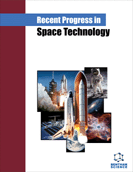Abstract
In this paper, we proposed an analytical method to produce the predicted ephemeris parameters that are to be used in a GPS receiver to derive the positions and velocities of GPS satellites. Specifically, we adopt the method of averaging to solve a perturbed satellite orbital determination problem. The method of averaging can be used to analytically solve the perturbed orbital differential equation. In comparison with the usual numerical method, which needs to integrate the orbit parameters over certain time interval and hence the parameter error will increase along with time of prediction, the proposed method has the advantage that the satellite position error would not accumulate. Therefore, GPS receiver within a mobile device is able to use the derived parameters to propagate orbit position and velocity information for a relatively longer period with the required accuracy for user position computation. The derived parameters are six Keplerian elements, which is quite readily to be incorporated with the traditional navigation processing algorithm. This paper also reviews some of recent patents in this field, with special focus on the GPS ephemeris extension and its applications in the assisted GPS as well as indoor navigation.
Keywords: Assisted GPS, average method, ephemeris extension, global positioning system, lagrange’s variation of parameters, orbit determination, three-body problem
 2
2

